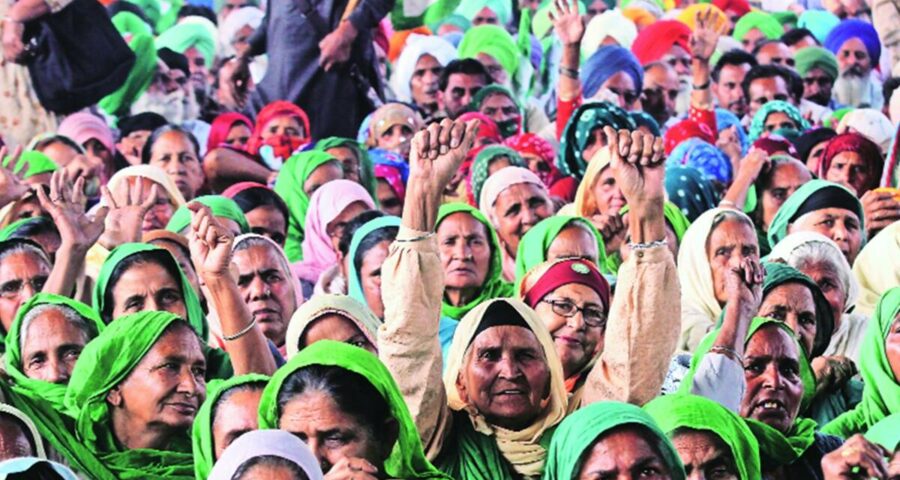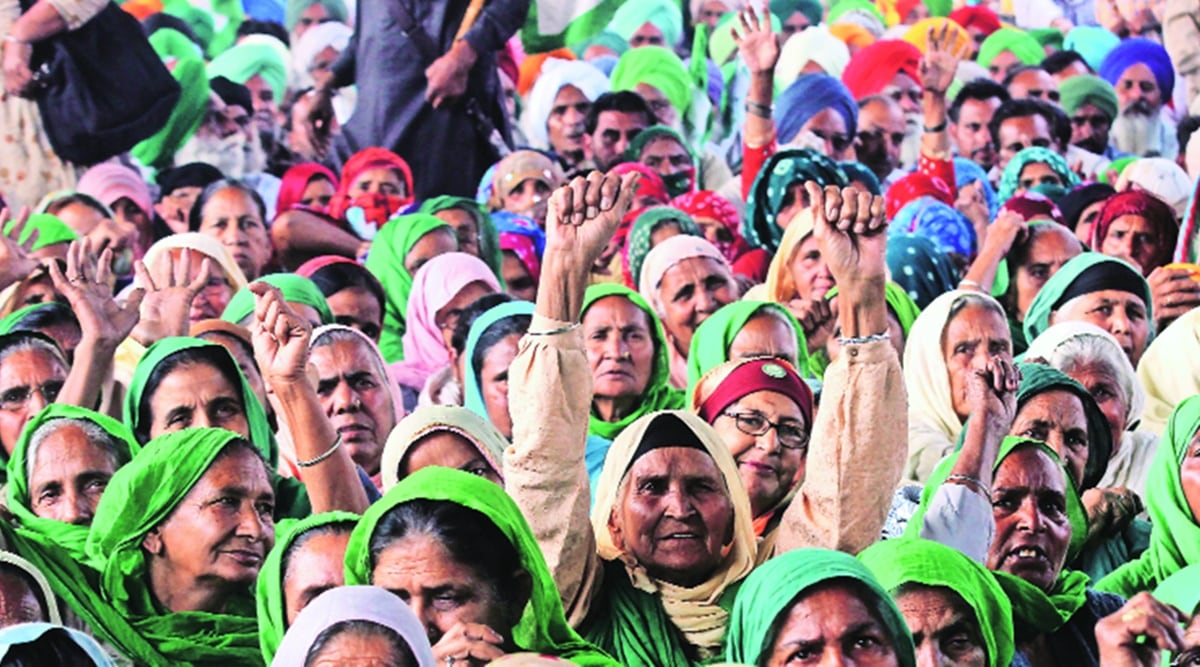🔴 On November 9, the SKM had announced that 500 farmers will head to Parliament in their tractor trolleys every day from November 29 until the Winter Session ends.
A large number of farmers who went to Delhi’s borders Friday to mark the first anniversary of their agitation have decided to stay put till the Samyukt Kisan Morcha (SKM) decides the next course of action.
On November 9, the SKM had announced that 500 farmers will head to Parliament in their tractor trolleys every day from November 29 until the Winter Session ends. Despite the Prime Minister announcing the repeal of the three laws, farm leaders say several demands are yet to be met. SKM leaders will meet Saturday to decide whether to go ahead with the Parliament march.
Major Singh Punnawal, a farm leader from Punjab, said several farmers went to the capital by train instead of taking tractor trolleys. “When the agitation was launched last year, many had come to Delhi borders in their tractor trolleys as they had to bring food; these also doubled up as sleeping areas. Now, we have enough food and huts at the protest sites. Getting a tractor trolley to the capital is a costly affair as the fuel cost is Rs 5,000-7,000…”
On Friday afternoon, the crowd at the Tikri protest site could be seen from as far as the police barricade at the Metro station. Ladoos, jalebis, bananas and snacks were being distributed while tractors belted songs about the farmer movement and many broke into impromptu dances.
Among the protesters trickling in over the last few days were many first timers.
Manpreet Kaur from Patiala, whose family is involved in agriculture, said she took time off work and arrived at the site Thursday.
“I’ve always supported the protest, but had time to be here only now…,” she said.
Surinder Kaur, who arrived from Mansa on November 24, said: “There’s joy and sorrow that the laws are being repealed — sorrow that it took so long. Living in tractor trolleys or standing for a few hours in trains every time we need to come here is not easy…,” she said. Kaur, associated with BKU (Ugrahan), is at the protest site at Tikri for the fifth time.
The sowing of wheat has been completed, giving more farmers time to be at the protest site now, said Gurmel Kaur, who owns 20 bighas of land in Malerkotla. She is among 13 women from Malerkotla who arrived at Tikri for the first time earlier this month, went home, and then came back to mark a year of the protest.
“We used to think Delhi was very far away. With the laws and the protests, it doesn’t feel so far away anymore. Usually, only men from our village come to the site. This month, we decided to come too,” said Savri Sarabjeet, who arrived with the women from Malerkotla in a show of solidarity, though she does not own any farmland.
Some like Jasmel Kaur from Mansa said they will return on Saturday, having come to Tikri just for the one-year event. “We will stay at least for a week,” Sarabjeet added.
Senior BKU leader Gurnam Singh Chaduni said, “The three laws are yet to be repealed. We expect that the government will take up our other demands too.”
Meanwhile, the farmers from Punjab received a rousing welcome from Haryana farmers on Thursday and Friday when they were marching towards Delhi borders on their tractor-trolleys, buses, cars and jeeps. Haryana farmers had also arranged breakfast and lunch along with sweets for them. At Uchana, Jind and Gohana of Panipat district, Haryana farmers were waiting for them to welcome them.
From Jind, a section of Punjab farmers moved towards Singhu and the rest went towards Tikri border. A villager said, “Vehicles kept moving towards Delhi the entire day and the farmers had the same enthusiasm as a year ago.”
Major Singh Punnawal, a farmer leader from Punjab, told The Indian Express, “This time, many farmers also took the train. When the agitation was launched in 2020, a large number of farmers had come to Delhi borders in their tractor-trolleys because that time they had to bring the food material too but now we have sufficient stocks there. Earlier, there was also no plan of accommodation and protesters made their vehicles make-shift homes.
Also, tractor-trolley is a costly affair as diesel for a to and fro journey is anything between Rs 5,000 and 7,000. Under such circumstances, a large number of farmers are opting for trains and other vehicles instead of tractor-trolleys.”
Meanwhile, to strengthen bonding between different communities a sammelan was organised in Ambala on Thursday. Chaduni said, “There are attempts to divide us on the basis of caste. We organised this event to counter such attempts. Our struggle is against the capitalists.”
Source: Read Full Article


